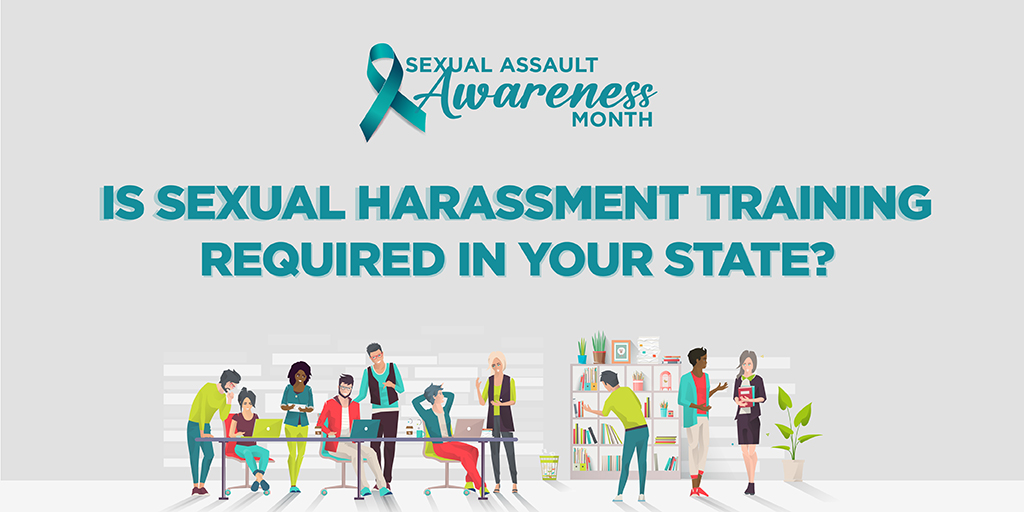
As April is Sexual Assault Awareness Month, PrestigePEO is committed to providing you with the relevant information you need to recognize the importance of this issue and provide appropriate training for your office. In recent years, many states have begun to require sexual harassment training, but have very different stipulations for how often it needs to be provided, what the curriculum should consist of, and who needs to take it. Today we will review the requirements in all 50 states. For further details on the requirements in these states, visit this guide.
Sexual Harassment Training is Required for the Following States:
Sexual Harassment Training in These U.S. States is Only Required for Certain Type of Employees:
- District of Columbia: training is required for tipped employees
- Kansas: training is required for employees and interns of government agencies
- Kentucky: training is required for state employees
- Louisiana: training is required for state employees
- Maryland: training is required for state employees
- Mississippi: training is required for state employees
- Nevada: training is required for state employees
- New Jersey: training is required for state employees
- North Carolina: training is required for state employees
- Pennsylvania: training is required for state employees
- Tennessee: training is required for state employees
- Texas: training is required for state employees
- Utah: training is required for state employees
- Virginia: training is required for legislative branch employees
- Washington: training is required for state employees
What Do You Do If Your State Doesn’t Require Sexual Harassment Training?
Any state not mentioned above does not mandate sexual harassment training. Idaho, Nebraska, Ohio, Oregon, Rhode Island, South Dakota, Vermont, and Wisconsin recommend sexual harassment training but do not require it currently. As you can see, training requirements vary by state. Even in the states where sexual harassment training is required, the conditions are different. Some states require yearly training, while others require it bi-annually.
We encourage you to provide sexual harassment training regardless of whether your state requires it or not. It helps to ensure all employees are on the same page about what is and isn’t appropriate workplace behavior. If you don’t provide sexual harassment training, your employees could say that they didn’t know that their actions could be considered harassment. Indeed, much of sexual harassment training is explaining that harassment isn’t always overt and obvious; it is often nuanced and insidious. When you provide this training, you are making sure that your employees have a clear understanding of harassment.
If you have a sexual harassment complaint, courts often look favorably on companies that have provided training even though the state regulations didn’t require it. You can show documentation confirming that the individuals involved received sexual harassment training, even though it wasn’t required, and that you did your due diligence to prevent any harassment from occurring. Not only does providing training send the right message to the courts should a complaint arise, but it also sends the right message to your employees. It tells them that your company takes sexual harassment complaints seriously and that you’re committed to fair treatment. For anyone who may have suffered from harassment previously, this will help them to know they’re working in a safe place. Additionally, harassment complaints aren’t just costly if the courts find the claim to be in the employee’s favor. The cost of investigating a sexual harassment report is high. On average, workplace sexual harassment costs companies $2.6 billion in lost productivity. Finally, sexual harassment guidelines are still in flux, and it seems likely that more states will begin to require this training even if they don’t currently. By providing training now, you can get ahead of the curve. To learn more about the consequences of not providing sexual harassment training, read our blog here.
When you become a client of PrestigePEO, we provide the requirements for all states and will guide you so that your training is compliant with your state’s needs. If you are already a current PrestigePEO client and are confused about what is required of you as an employer, please reach out to your HRBP and we would be happy to assist you.
We hope this guide is helpful to you! If you have any further questions, please reach out to us.




